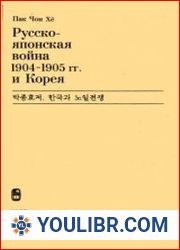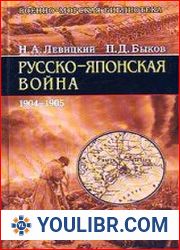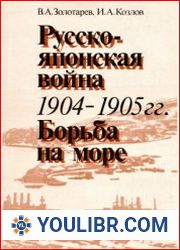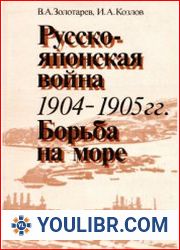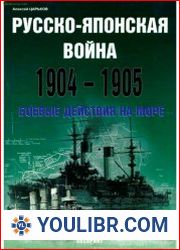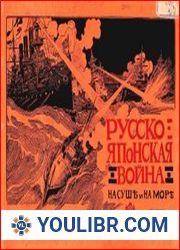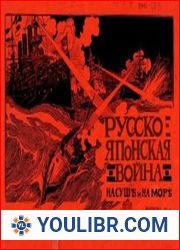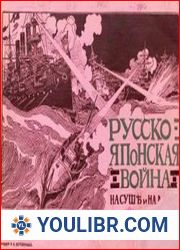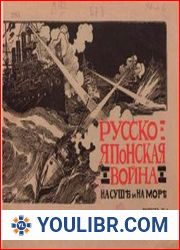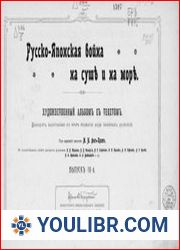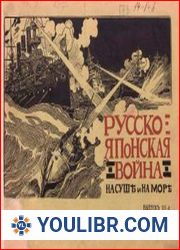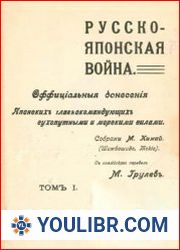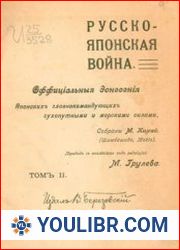
BOOKS - MILITARY HISTORY - Русско-японская война 1904-1905 гг. и Корея...

Русско-японская война 1904-1905 гг. и Корея
Author: Пак Чон Хё
Year: 1997
Format: PDF
File size: 21 MB
Language: RU
Year: 1997
Format: PDF
File size: 21 MB
Language: RU
The book 'Русскояпонская война 1904-1905 гг и Корея' (RussianJapanese War of 1904-1905 and Korea) by Пак Чон Хё provides an in-depth examination of the historical events surrounding the RussoJapanese War and its impact on the Korean peninsula during that time period. The book offers a comprehensive analysis of the political and economic interests that fueled the conflict between Russia and Japan, ultimately leading to the defeat of Russia and the loss of independence for Korea. The plot revolves around the technological advancements made during this period, specifically in the fields of naval warfare and communication, which played a crucial role in the outcome of the war. The author emphasizes the significance of understanding the evolution of technology as the basis for human survival and unity in times of war. The story begins with the rise of imperialism in East Asia, particularly in Russia and Japan, and how their conflicting interests led to the outbreak of war. The Russian Empire, seeking to expand its influence in the region, sought to annex Korea, while Japan, desiring to assert its dominance, resisted this attempt. This clash of interests ultimately led to the RussoJapanese War, one of the first major conflicts of the 20th century. As the war progressed, both sides employed cutting-edge technologies such as torpedo boats, submarines, and wireless telegraphy. These advancements significantly influenced the course of the war, with Japan's superior technology and tactics giving them an advantage over Russia. The Russian Navy, once considered one of the most powerful in the world, was caught off guard by Japan's modernized fleet, leading to a series of devastating defeats.
книга 'Русскояпонская война 1904-1905 гг и Корея'(война RussianJapanese 1904-1905 и Корея) Пак Чон Хё обеспечивает всестороннюю экспертизу исторических событий, окружающих Русско-японскую войну и ее воздействие на корейский полуостров в течение того периода времени. Книга предлагает всесторонний анализ политических и экономических интересов, которые подогрели конфликт между Россией и Японией, в конечном итоге приведший к поражению России и потере независимости Кореей. Сюжет вращается вокруг технологических достижений, сделанных в этот период, особенно в области военно-морской войны и связи, которые сыграли решающую роль в исходе войны. Автор подчеркивает значимость понимания эволюции технологий как основы выживания и единства человека в военное время. История начинается с подъема империализма в Восточной Азии, особенно в России и Японии, и того, как их противоречивые интересы привели к началу войны. Российская империя, стремясь расширить своё влияние в регионе, стремилась присоединить Корею, в то время как Япония, желая утвердить своё господство, сопротивлялась этой попытке. Это столкновение интересов в конечном итоге привело к Русско-японской войне, одному из первых крупных конфликтов XX века. В ходе войны обе стороны использовали передовые технологии, такие как торпедные катера, подводные лодки и беспроводная телеграфия. Эти достижения значительно повлияли на ход войны, поскольку превосходные технологии и тактика Японии давали им преимущество над Россией. Российский военно-морской флот, некогда считавшийся одним из самых мощных в мире, был застигнут врасплох модернизированным флотом Японии, что привело к серии разгромных поражений.
libro «La Guerra Ruskoyaponiana 1904-1905 y Corea» (Guerra ruso-japonesa 1904-1905 y Corea) Park Jung-hyo proporciona un examen completo de los acontecimientos históricos que rodean la guerra ruso-japonesa y su impacto en la península coreana durante ese período de tiempo. libro ofrece un análisis exhaustivo de los intereses políticos y económicos que alimentaron el conflicto entre Rusia y Japón, que finalmente llevó a la derrota de Rusia y la pérdida de la independencia de Corea. La trama gira en torno a los avances tecnológicos realizados durante este periodo, especialmente en el ámbito de la guerra naval y las comunicaciones, que jugaron un papel decisivo en el desenlace de la guerra. autor subraya la importancia de comprender la evolución de la tecnología como base de la supervivencia y la unidad del hombre en tiempos de guerra. La historia comienza con el auge del imperialismo en Asia Oriental, especialmente en Rusia y Japón, y cómo sus intereses contradictorios condujeron al estallido de la guerra. imperio ruso, en un esfuerzo por expandir su influencia en la región, buscó anexionarse Corea, mientras que Japón, deseoso de afirmar su dominio, se resistió a este intento. Este choque de intereses llevó finalmente a la guerra ruso-japonesa, uno de los primeros grandes conflictos del siglo XX. Durante la guerra, ambas partes utilizaron tecnología avanzada, como lanchas torpederas, submarinos y telegrafía inalámbrica. Estos avances influyeron significativamente en el curso de la guerra, ya que las excelentes tecnologías y tácticas de Japón les dieron una ventaja sobre Rusia. La Armada rusa, una vez considerada una de las más poderosas del mundo, fue tomada por sorpresa por la flota modernizada de Japón, lo que llevó a una serie de derrotas devastadoras.
il libro «La guerra del russo 1904-1905 gg e la Corea» (la guerra del 1904-1905 e la Corea) di Park Jung-hyo fornisce un'analisi completa degli eventi storici che circondano la guerra tra Russia e Giappone e i suoi effetti sulla penisola coreana nel corso del tempo. Il libro offre un'analisi completa degli interessi politici ed economici che hanno alimentato il conflitto tra Russia e Giappone, che alla fine ha portato alla sconfitta della Russia e alla perdita dell'indipendenza della Corea. La trama ruota intorno ai progressi tecnologici realizzati in questo periodo, soprattutto nel campo della guerra navale e delle comunicazioni, che hanno avuto un ruolo cruciale nell'esito della guerra. L'autore sottolinea l'importanza di comprendere l'evoluzione della tecnologia come base della sopravvivenza e dell'unità umana in tempo di guerra. La storia inizia con l'ascesa dell'imperialismo in Asia orientale, in particolare in Russia e Giappone, e il modo in cui i loro interessi contrastanti hanno portato allo scoppio della guerra. L'impero russo, nel tentativo di espandere la sua influenza nella regione, ha cercato di unire la Corea, mentre il Giappone, desideroso di affermare il suo dominio, ha resistito a questo tentativo. Questo scontro di interessi alla fine ha portato alla guerra tra Russia e Giappone, uno dei primi grandi conflitti del XX secolo. Durante la guerra, entrambe le parti hanno utilizzato tecnologie avanzate come siluri, sottomarini e telegrafi wireless. Questi progressi hanno influito in modo significativo sul corso della guerra, in quanto le eccellenti tecnologie e tattiche del Giappone hanno dato loro un vantaggio sulla Russia. La marina russa, una volta considerata una delle più potenti al mondo, è stata sorpresa dalla modernizzata flotta giapponese, che ha causato una serie di devastanti sconfitte.
''







